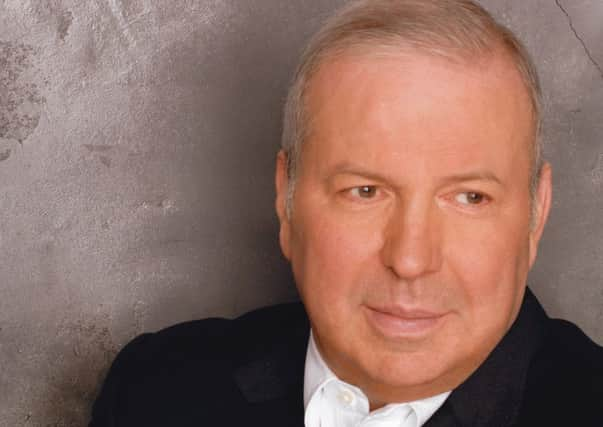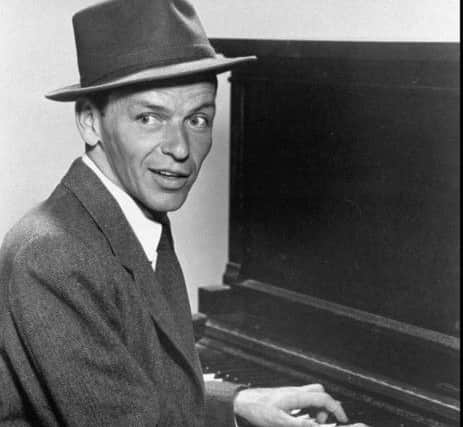Frank Sinatra Jr on living in his father’s shadow


With the arguable exception of Elvis Presley, no other singer comes close to touching Frank Sinatra’s cultural impact, star quality and iconic status. Was Frank Jr conscious as a kid that his father was a superstar? “Not for many years,” he replies. “Being a child it would be very difficult to imagine what the definition of a superstar was. In this instance, I just regarded him as dad.”
Inevitably, dad’s touring and filming schedule did not allow for much of a home life. By the time his parents split when he was seven years old, Sinatra Sr had already been absent from much of his son’s childhood – as well as his birth. He believed Frank Jr should learn to stand on his own two feet anyway.
Advertisement
Hide AdBut he flexed those paternal reflexes quickly enough in December 1963 when the 19-year-old Frank Jr was kidnapped by drifters from his hotel room in Lake Tahoe. Sinatra dealt directly with his son’s abductors, offering $1 million for his safe return.


The defence team at the subsequent trial were able to spin the kidnappers’ ineptitude in accepting a ransom of “only” $240,000 by suggesting the whole farrago had been a Sinatra plot to raise his son’s career profile. While this was simply legal opportunism, the accusation stuck and, ironically, the kidnap remains the most (in)famous episode of Sinatra Jr’s life. Yet he has determined to do music his way. Given his father’s lead, some might say that he was destined for it. Some – but not Frank Jr
“I don’t know if destined is the word,” he demurs. “When I was growing up, it occurred to me I’d better find something to do that at least I might have some degree of talent for. I felt maybe I had some talent for music.”
Sinatra learned piano from the age of five. “I used to be scolded constantly by my piano teacher for not studying my lessons. More often than not, I was sitting at the piano, writing my own things.”
His original musical ambition was to compose film soundtracks. He scored his first and only movie, The Beach Girls and the Monster aka Monster from the Surf, when he was 20.
“That movie you wouldn’t want to watch,” he cautions – though I think I’ll be the judge of that. As described by Sinatra, this 1960s creature feature sounds like a right C-movie romp. “It was pretty hackneyed, about this terrible sea monster who comes out of the ocean and molests all the young girls in their bikini bathing suits and then the hero comes along, kills the sea monster and then he molests all the young girls in their bikini bathing suits…
Advertisement
Hide Ad“Some video company actually found this terrible low-budget teenage movie ten, fifteen years ago,” he says with a mix of horror and amusement. “I went to a store that was selling it and said, ‘you’d better be nice to me or I’m going to chain you all to chairs and force you to watch this movie’, which is cruel and unjust punishment.”
Yet, equally, Sinatra Jr did not consider singing to be his musical calling. “I never did discover my voice,” he says. “I was pushed into singing by a quirk of circumstances one night when I was in college and I was the worst singer I ever heard. But there were certain companies that decided they wanted to employ this novelty because the people were curious and that was how it worked.”
Advertisement
Hide AdSinatra Jr has always assessed his career with a blend of philosophical self-awareness – he is fond of quoting Confucius – and old school showbiz values, once quipping that “you’d be surprised how little demand there is for Frank Sinatra Jr records”.
“There’s a saying” – non-Confucian, this one – “when suddenly the telephone stops ringing, the silence is deafening. I have never been in demand – 53 years I have been dealing with that. I have never had a hit record, I have never had a hit movie, I have never had a hit television show, therefore I have never been a hit, and that is the honest truth of it.”
Nevertheless, Sinatra has sustained a lifetime career in music and takes the craft of singing seriously – one of several things he learned from his father. “The first thing was to speak the language correctly, to pronounce the words correctly,” he says, “then the second thing was to tell the story. And that is probably the most important responsibility that a singer has, going back to the days when they referred to singers as minstrels.”
The self-deprecating Sinatra Jr was surprised when his father recruited him as his conductor and musical director in 1988. “I asked ‘why me? There are so many better musicians out there,’ and he thought for a minute and said, ‘Maybe another singer can understand what a singer is trying to do,’ and that was why he gave me that job.”
Or maybe, just maybe, he wanted his son close after years of being apart. Father and son worked together for the next seven years until Sinatra Sr’s retirement from the stage. Finally, he had reconciled work with family life.
“It takes massive stamina and concentration to do a concert like that and it became more difficult the closer he got to the age of 80. He was reaching out to me to help him,” says Sinatra. “I doubt that I will still be giving concerts when I reach the age of 80, I’m already past the age of 70, so it’s kind of difficult to make predictions into the future like that.”
Advertisement
Hide AdSince his father’s death in 1998, he has been a careful custodian of the Sinatra legacy while also being mindful not to exploit his memory. He rejected an offer to play his father in an episode of Star Trek: Deep Space Nine but was content to appear as himself in an episode of The Sopranos, for example.
In 2002, he developed a tribute to his father, Sinatra Sings Sinatra, which he has toured with ever since. But the centenary show will be the most sophisticated yet, employing archive film footage to provide some autobiographical perspective which goes beyond the high-rolling, hard-partying, martini-supping, Mafia-connected, matinee idol myth.
Advertisement
Hide AdHaving done his research, Sinatra Jr is happy to present a fresh take on his father. “I learned certain things about the circumstances surrounding his life which I never even so much as imagined,” he says. “So now is the time I believe that we should deal a little bit with his life, not just his music.”
Frank Sinatra Jr plays the Royal Concert Hall, Glasgow on 28 June